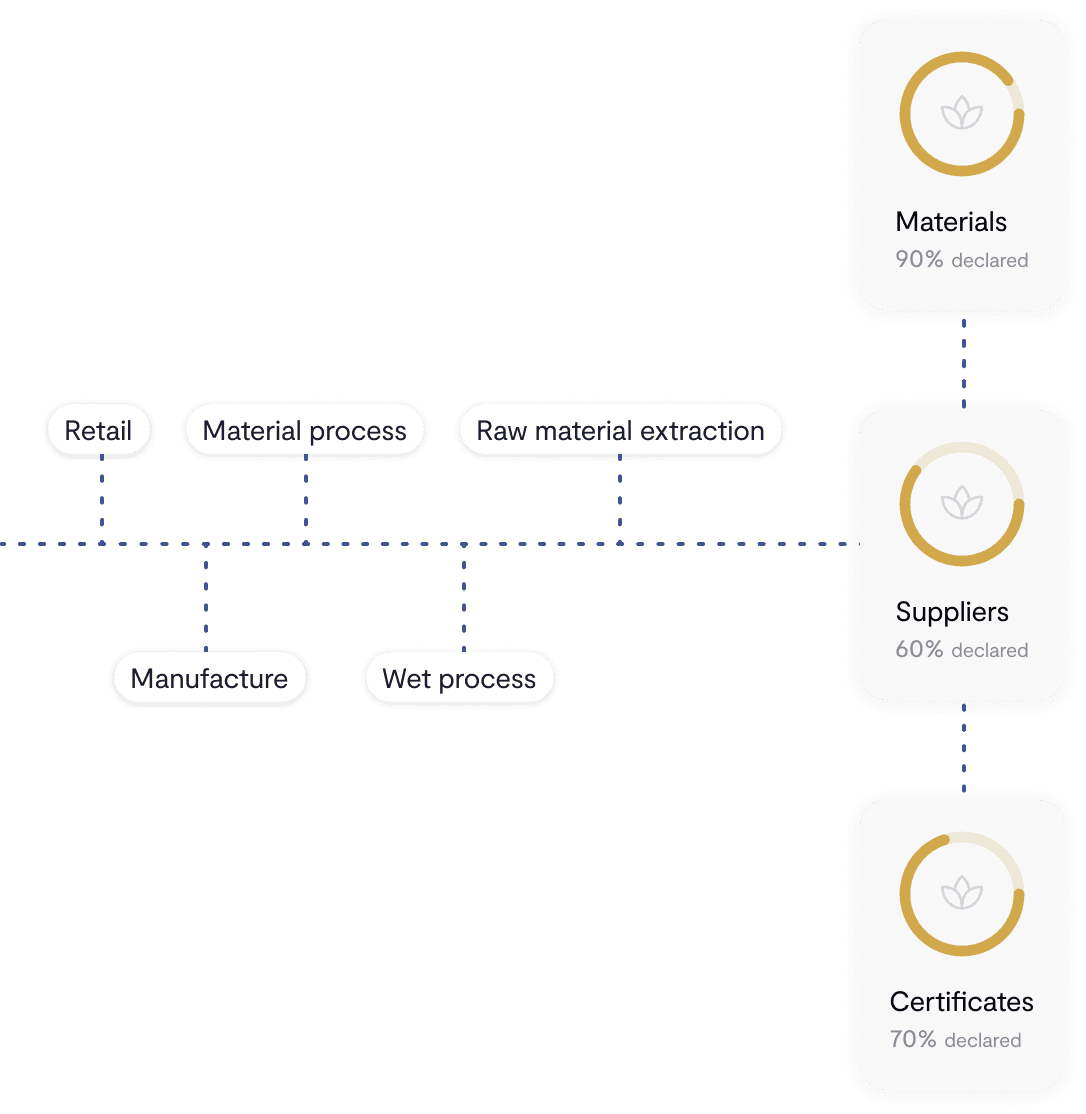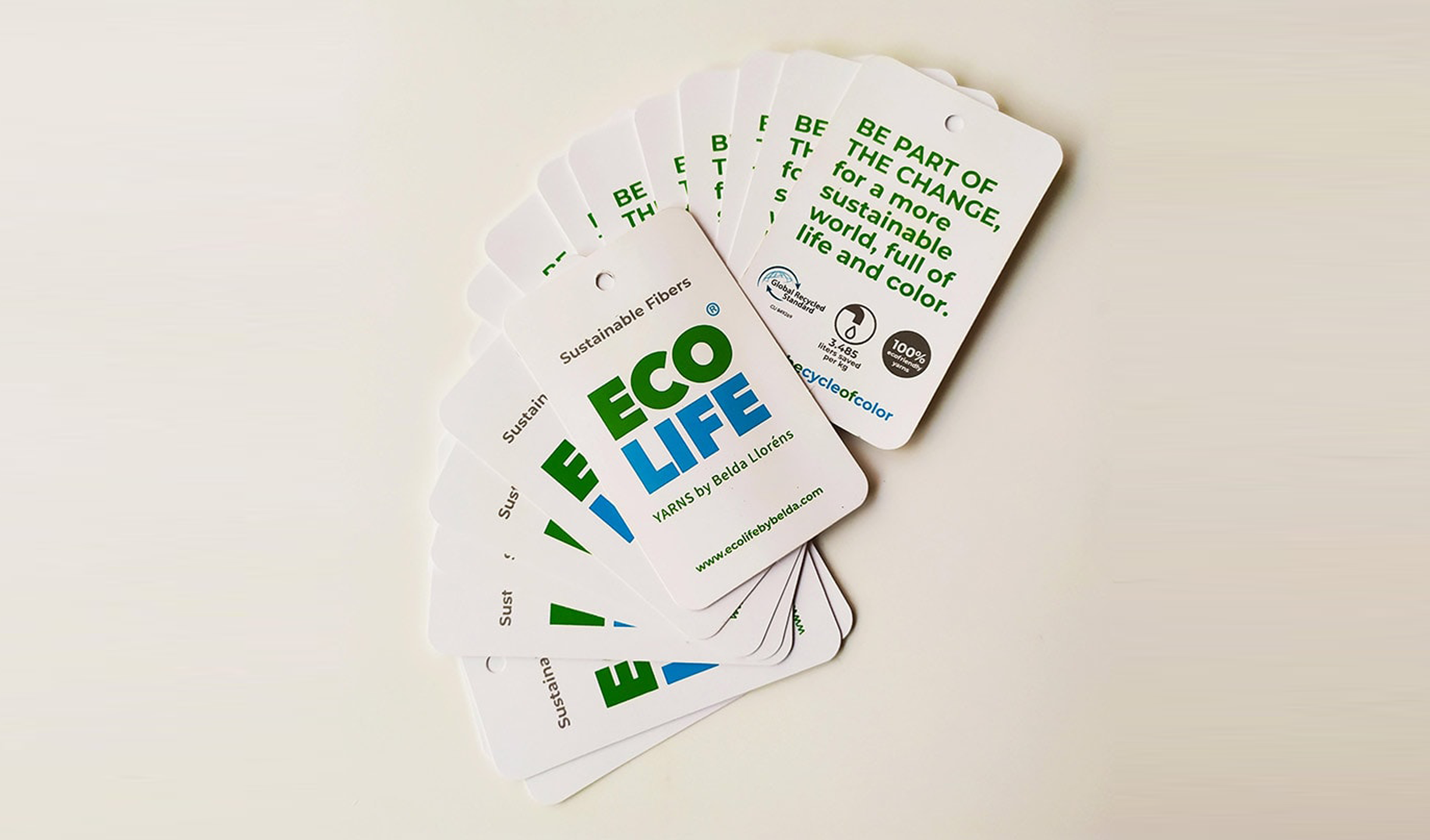The debate is open: who is responsible for the sustainability of the fashion industry? Should the burden fall on the brands or their suppliers? Although the supply chain has faced significant pressure from major textile groups, updating the practices carried out by suppliers is crucial for transforming the industry. Discover why suppliers must lead the charge in meeting sustainable fashion demands.
Brands shift the responsibility onto suppliers, while suppliers question who will finance the necessary infrastructure to achieve climate targets
Regulatory demands challenge the traditional ways brands interact with their suppliers. The need to meet the targets set by the European Union sparks a discussion about who should be responsible for transforming the supply chain to ensure these climate goals are met within the required timeframe. Brands shift the responsibility onto suppliers, while suppliers question who will finance the necessary infrastructure to achieve these targets.
Fortunately, collaboration between brands and suppliers is becoming evident with the emergence of efforts like the Future Supplier Initiative. Led by H&M, Gap, Mango, and Bestseller, this proposal aims to offer a collective financing model to support decarbonization in the garment sector. The initiative will start in Bangladesh and aims to expand to other key clothing manufacturing regions, including Vietnam, India, China, Italy, and Turkey.
The goal of this initiative is to support supply chains in achieving their climate targets by 2030. In addition to financial incentives, technical support will be provided to help suppliers identify and implement low-carbon technologies and solutions. Baselines and emission reduction monitoring will also be established to demonstrate the impact of the projects funded and implemented by the initiative.
Any supplier wishing to join a transformation plan will need tools that enable them to assess the impact generated by their operations
In any case, this proposal and any other aimed at reducing the impact of supply chains force suppliers to measure the footprint of their activities so they can report it to the brands they work for. Therefore, any supplier wishing to join a transformation plan will need tools that enable them to assess the impact generated by their operations.
To this end, BCome’s platform, a leader in impact measurement in the textile sector, is expanding to meet the needs of suppliers. Our tools, beyond offering solutions for finished products, now also adapt to suppliers’ requirements, allowing them to anticipate their clients’ demands and enhance their products with valuable information.
How to take control of your supply chain as a supplier
To lead change and meet the sustainable demands of the sector, it’s essential to be proactive in assessing the impact of your own operations. As a materials supplier, your business can now leverage the following features available on BCome’s platform:
- Set up fabric projects in the PLM and access personalized information about materials.

- Gain key traceability information for your materials, such as processing countries or distribution of raw material composition.

- Obtain essential impact metrics for each material in the Life Cycle Assessment tool.

- Verify the breakdown of impact by stages tailored to your supply chain’s reality.

- Evaluate the Eco-Score of each material included in your portfolio.

Information is power, use it to elevate your product
Achieving the climate targets required by regulations is a collective task that requires collaboration from both brands and suppliers. However, suppliers who anticipate these requirements will receive greater attention from brands. This is because they will have the necessary information for brands to achieve greater transparency about their products and effectively communicate it to their end customers. Here’s how having key information will benefit your business:
- Provide detailed and transparent information. Offer comprehensive details about material composition, traceability data, and environmental impact metrics, ensuring customers receive a clear and sustainable product offering.
- Align your practices with the sustainability goals of your customers. Support your customers’ sustainable goals by strategically collaborating and ensuring that your materials meet recognized certifications and standards.
- Enhance competitiveness through product transparency. Provide full visibility of the supply chain and develop clear reports that highlight sustainable features, building a reputation of trust and differentiation in the market.
We understand that transitioning to more sustainable systems can be challenging for your business. That’s why at BCome, we want to support you every step of the way. Would you like to learn firsthand how our platform works? Book a training session to discover how your business can leverage the leading sustainability platform. We would love to understand your needs and assist you in meeting them!









